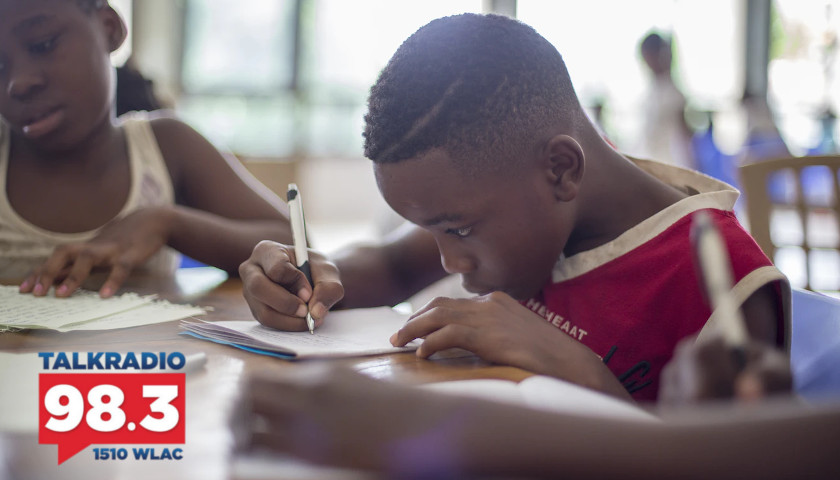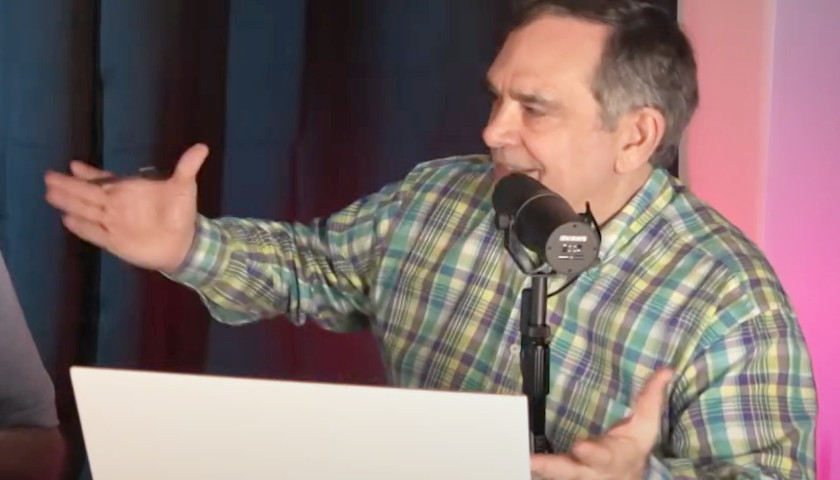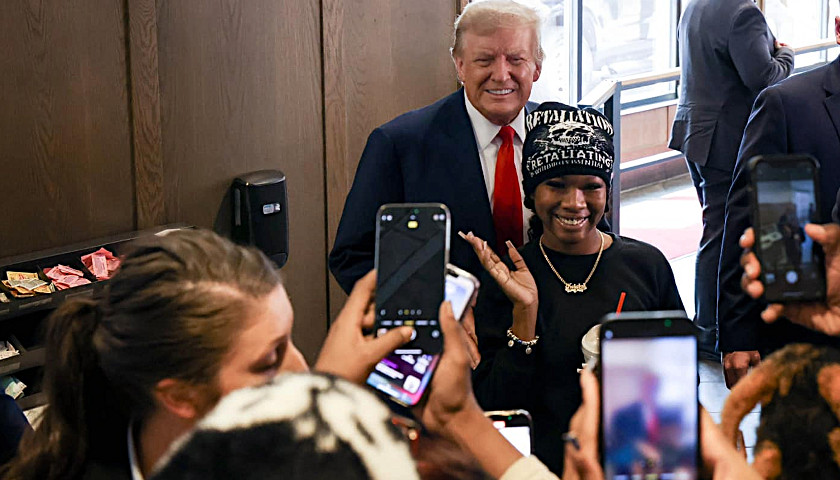Live from Music Row Friday morning on The Tennessee Star Report with Michael Patrick Leahy – broadcast on Nashville’s Talk Radio 98.3 and 1510 WLAC weekdays from 5:00 a.m. to 8:00 a.m. – host Leahy welcomed the original all-star panelist Crom Carmichael to the studio.
At the end of the second hour, Carmichael discussed Trump’s recent announcement suggesting that if schools close parents and their children should receive the funding that schools would receive so that they can choose where to send their kids to school. He determined that the lower-income and minority students would suffer the most and believes that those who knowingly keep them out of school are the real racists.
(Trump clip plays)
If schools do not reopen the funding should go to parents to send their child to public, private, charter, religious or home school of their choice. The key word being choice. If the school is closed the money should follow the student so the parents and families are in control of their own decisions.
Leahy: Well Crom. I think that might be a breakthrough in breaking the bad monopoly that the unions and the left have on K-12 public schools. They don’t want to open here in Nashville. They’ve said, we are not going to be open for in-person school.
Carmichael: And by the way, there are a lot of teachers who disagree with that policy.
Leahy: Absolutely:
Carmichael: But they are not given the choice of teaching children.
Leahy: And they want to teach children.
Carmichael: It is an incontrovertible fact.
Leahy: Incontrovertible.
Carmichael: Thank you very much. (Leahy laughs) It is that. (Laughter) I am doing my Joe Biden impersonation. Now I’ve lost my train of thought. I really haven’t I was just teasing. It’s a fact that nobody denies that children if they don’t go to in-person school they lose some education forever.
Leahy: It’s a developmental problem.
Carmichael: It is a developmental problem. And the younger they are and the lower-income they are has shown that these kids who in Nashville happen to be more Black and more Hispanic than White. The lower-income kids are effected more detrimentally than kids who are not lower income.
I would say that given the way that the Democrats throw the term around racist if you know for a fact that and if you don’t then you are incompetent. If you know for a fact that lower-income kids are hurt by not having in-person education. If you know that and you take steps to make sure they don’t in-person education then I think that the word racist applies to you.
What Trump is saying is a darn good idea. It will not become legislation. But it is a very good idea. And Biden if he’s ever asked a question by the press and he doesn’t take questions should be asked whether or not he agrees with Trump. And especially whether lower-income people should have an educational choice.
Leahy: Absolutely. Let’s take it here to Nashville. The Nashville Public School Board has chosen not to open up for in-person school in August. And the people being hurt are young Black and Hispanic kids in poor neighborhoods.
Carmichael: Predominately. They are the ones who are being hurt more.
Leahy: Predominately. And the president is giving them a lifeline here.
Carmichael: He’s trying to.
Leahy: Saying look, if public schools don’t want to be open.
Carmichael: Let’s be clear. It’s not if public schools. This is a decision made by a handful of people. A handful of people. This is not the principals. This is not the teachers. This is not the parents. This is a systemic problem.
Leahy: Systemic problem.
Carmichael: This is what I’m saying. We are organized where you have this school board that controls the destiny of many kids.
Leahy: I think about 90,000 kids in Metro Nashville.
Carmichael: I think our government-run school system is closer to 70,000.
Leahy: I’ll go with that. As a point of fact, we’ll find out.
Carmichael: They still control their destiny and are making decisions on their own that affect 70,000. Lets’ just use that number, 70,000 children. Many of those children are Black and Hispanic saying you cannot go to school. And apparently Metro is still going to fund the school system. It’s a terrible decision.
Leahy: So its a civil rights issue I think for these kids in Nashville.
Carmichael: Of course, it is. Of course, it is.
Leahy: They should have the right to go to school. And, the president I think is absolutely correct that that should be money given to their families so they can go right now in August to a private school of their choice. I’m all in favor of that.
Carmichael: Yes.
Leahy: By the way, according to the Metro website, more than 86,000 students are currently enrolled in the districts. 73 elementary schools. 33 middle schools. 25 high schools. And 18 charter schools. 86,000.
Carmichael: There you go. It’s an even larger number of children who are affected.
Listen to the second hour here:
– – –
Tune in weekdays from 5:00 – 8:00 a.m. to the Tennessee Star Report with Michael Patrick Leahy on Talk Radio 98.3 FM WLAC 1510. Listen online at iHeart Radio.









“Carmichael: This is what I’m saying. We are organized where you have this school board that controls the destiny of many kids.”
The do nothing Sumner County School Board, that is nothing but a rubber stamp for Director Phillips, did not even question or vote on the Phillip’s very bad plan for opening schools this fall. I am figure that they just abdicated their responsibility to their god. I am still trying to understand why we have a school board considering they never appear to disagree with Director Phillips. Like I was told in private business. If everyone agrees on everything the boss says then only the boss is needed.